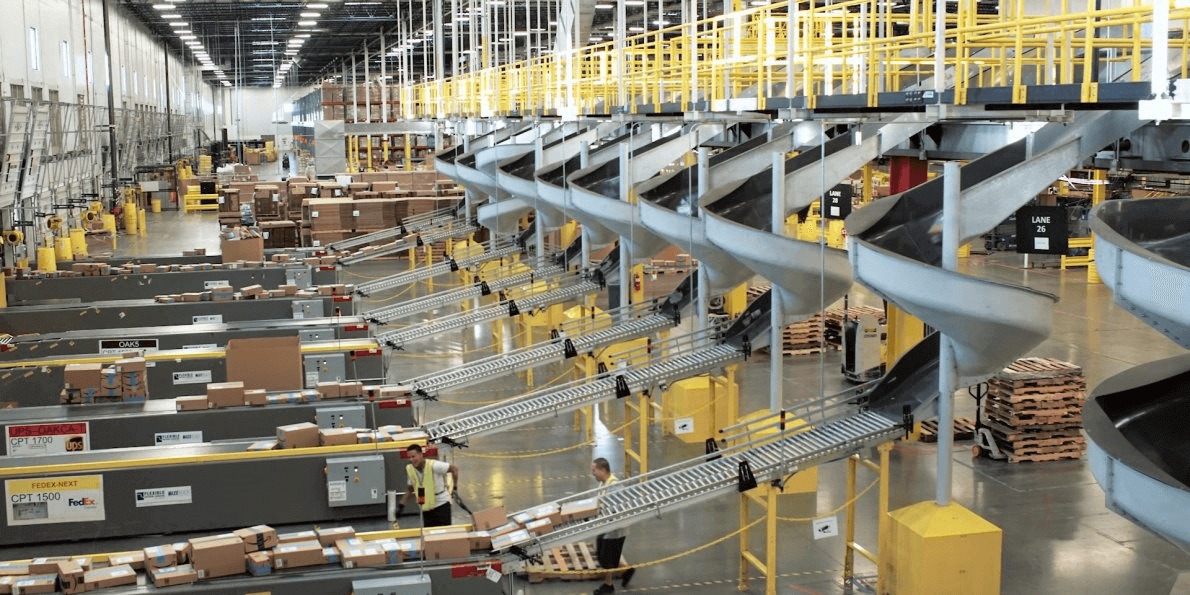
Efficient material handling is necessary for maintaining productivity and competitiveness in various industries. However, standard or turnkey conveyor systems often fail to address unique operational challenges. Customized automatic conveyor systems can provide solutions that enhance efficiency, safety, and compliance. This article explores how customized conveyor systems can be designed to meet specific material handling challenges.
Common Material Handling Challenges
Material handling in high-traffic environments presents several challenges hindering operational efficiency and safety. Here are some of the most common challenges faced in these settings:
- High Volume and Rapid Throughput Needs
Industries like e-commerce and manufacturing require rapidly handling large volumes of goods to meet demand and supply chain expectations. Standard conveyors may not always cope with such high-speed requirements, leading to bottlenecks and inefficiencies.
- Handling Fragile or Irregularly Shaped Items
Certain industries deal with items that are either fragile, like glassware, or irregularly shaped, such as custom machinery parts. These items need special handling to avoid damage, which standard conveyors may not provide.
- Compliance with Health and Safety Regulations
Industries are often under strict regulations to ensure workplace safety and product hygiene, especially in food processing and pharmaceuticals. Conventional conveyor systems may need modifications to meet these stringent standards.
- Space Constraints in Work Areas
Many operations do not have the luxury of expansive spaces. Traditional conveyor setups might not fit into irregular or confined spaces, making material handling cumbersome and less effective.
How Custom Conveyors Can Mitigate Common Challenges
Customized conveyor systems offer a tailored solution to the distinct challenges of various material handling scenarios. For high volume and rapid throughput, automatic conveyor systems can be customized with adjustable speeds and automated load management to maintain a constant flow of materials. Custom features such as padded belts and variable pressure rollers ensure gentle handling to minimize damage when dealing with fragile or irregularly shaped items.
Conveyors can be designed with food-grade materials to meet strict health and safety regulations and incorporate easy-to-clean designs that prevent contamination. In facilities where space is at a premium, customized configurations, including overhead or spiral conveyors, utilize vertical space efficiently and fit into tight areas, maximizing the available floor space.
It’s important to consult with reputable conveyor belt manufacturers who offer advanced 3D virtual modeling of your proposed customized conveyor system. This technology allows you to visualize how your load will move along the conveyor, enabling you to identify potential challenges, test alternative layouts, assess ergonomic factors, and plan installation strategies effectively. This proactive approach ensures a well-optimized conveyor system customized to your specific operational needs.
Benefits Of Customized Conveyor Systems
Customized conveyor systems provide substantial advantages by being specifically designed to meet the unique needs of different operational environments. Here’s a closer look at how these systems optimize business operations:
- Enhanced Efficiency: Custom conveyors, including automated models, are designed to streamline the flow of materials. They adapt to an operation’s specific throughput requirements, significantly reducing bottlenecks and enhancing overall productivity.
- Improved Safety: With features that cater specifically to the unique challenges of each workspace, such as ergonomic designs and integrated safety barriers, these systems reduce the risk of workplace injuries, creating a safer environment for employees.
- Regulatory Compliance: Custom systems can be engineered to meet stringent industry-specific regulations, ensuring that all processes adhere to legal standards for safety and hygiene, which is particularly crucial in sectors like food processing and pharmaceuticals.
- Space Optimization: Customized conveyor solutions are designed to fit unique facility layouts, making optimal use of available space. This allows for increased operational capacity and efficiency, even in areas with limited physical expansion.
- Adaptability: These systems can be quickly adapted or reconfigured to meet changing operational needs or production lines, offering high flexibility and future-proofing investments.
Implementing Customized Conveyor Systems
Implementing a customized conveyor system involves a strategic assessment of specific needs, followed by detailed planning with conveyor belt manufacturers specializing in bespoke solutions. This approach ensures the new system integrates seamlessly into existing operations, enhancing functionality without disrupting ongoing processes. Regular maintenance and adaptations to the system allow for sustained efficiency and compliance with evolving industry standards.
By investing in customized solutions, businesses enhance operational efficiency while improving workplace safety and compliance. The long-term benefits of such investments include sustained productivity and the ability to adapt to evolving industry standards and demands.